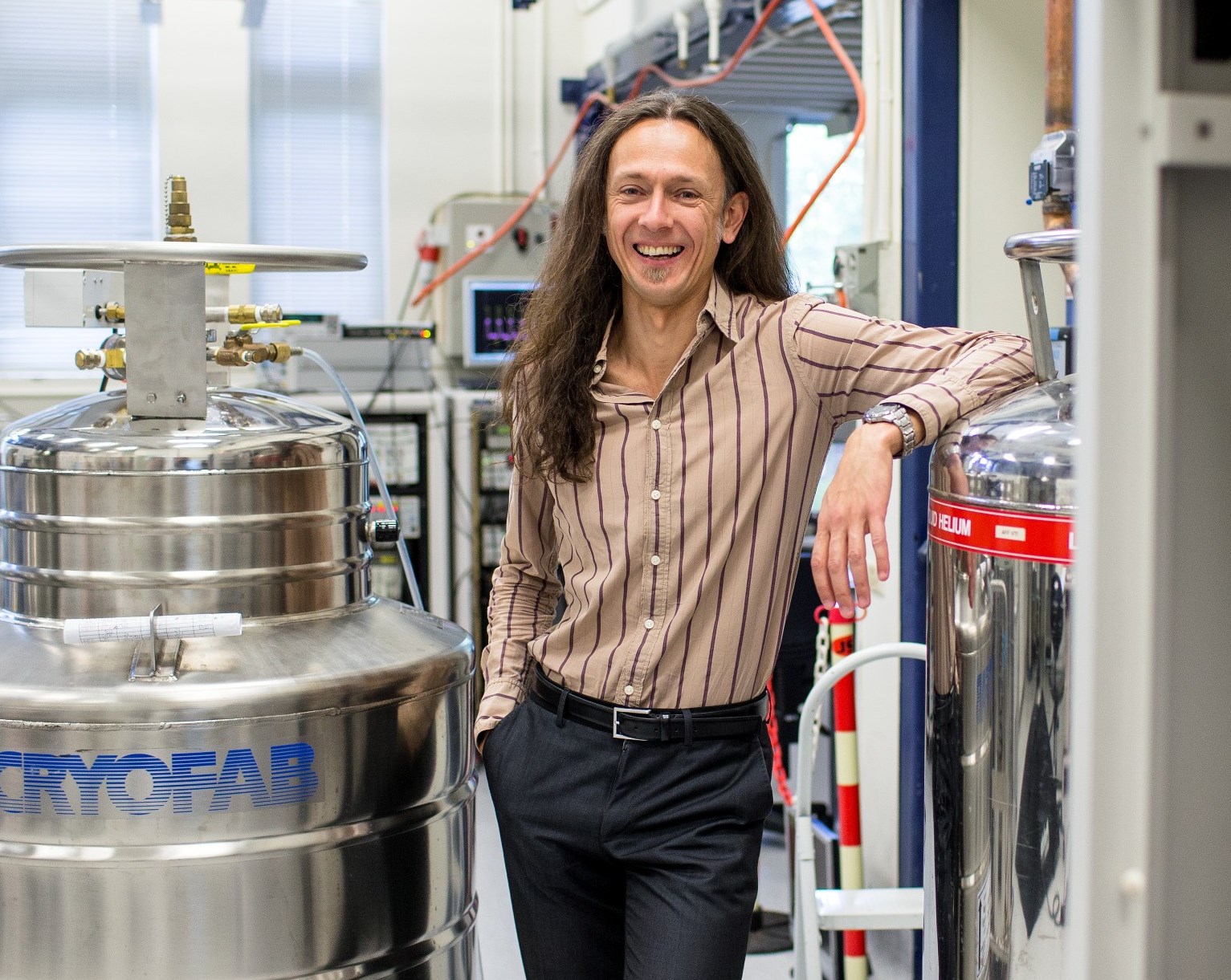My previous two blog posts have included both an introductory video to quantum computing that Andrea Morello shot, and blog post about ground-breaking research that Andrea Morello and his team have recently accomplished. I thought that because of this, what better important researcher to focus on than Andrea Morello himself?

Depicted: Andrea Morello | Photo Credit
A quick Google search for the most influential researchers in quantum computing thus far yielded the following list by David Toyli (PhD in Physics, UCSB):
Here's a list of prominent experimentalists, organized by topic. It's certainly not exhaustive, but covers most of the main approaches.
Superconducting Qubits (covered pretty well by Nicholas Grabon):
- John Martinis/Andrew Cleland Martinis Group - Home
- Rob Schoelkopf/Michel Devoret Schoelkopf Lab
- Irfan Siddiqi Quantum Nanoelectronics Laboratory
- IBM quantum computing group IBM Research Advances Device Performance for Quantum Computing
- Andreas Walraff Quantum Device Lab
Trapped Ions:
Spins in semiconductors:
- Ronald Hanson Hanson Group
- Amir Yacoby Yacoby Group
- Andrea Morello Associate Professor Andrea Morello
Linear Optics
- David Awschalom The Awschalom Group
- Jeremy O' Brien Jeremy O'Brien : Home page
- Ray Laflamme (mostly theory) Raymond Laflamme's page
I thought I would include the list in case you were interested in other researchers as well, since this blog has primarily focused on Morello's research. As can be seen in his list, Andrea Morello made the list as one of the most influential researchers for quantum computing research focused on "Spins in semiconductors" (A field of quantum computing).
Achievements and Revolutionary Research of Andrea Morello
Andrea Morello is currently serving as the head of the Quantum Spin control group at CQC2T. His research is said to be "the forefront of quantum technologies", as he demonstrated the world's first single-shot spin readout in silicon, and additionally the first spin quantum bits based on the electron and nucleus of a single phosphorus atom in silicon.
He has received the following awards as a result of these achievements:
He has received the following awards as a result of these achievements:
- 2011 Eureka Prize
- 2013 Malcom McIntosh Prize for Physical Scientist of the Year
- 2013 David Syme Research Prize
- 2014 NSW Science and Engineering Award
Among the newer things he is working on, he is currently working on methods to control interaction between two qubits and develop a quantum logic gate. A quantum logic gate is a logical unit that can be used to perform operations on sets of bits, similar to the binary logic of an ALU but using quantum mechanics. The end goal of the development of this gate is to transport information across silicate crystals without corrupting data of other quantum gates. In addition to this project has his current most important focus. Andrea has also contributed to the decoherence problem in dipolarly-coupled spins. He is interested in solving this problem by using spin quebits to test models of coherence and fundamental quantum computing issues.